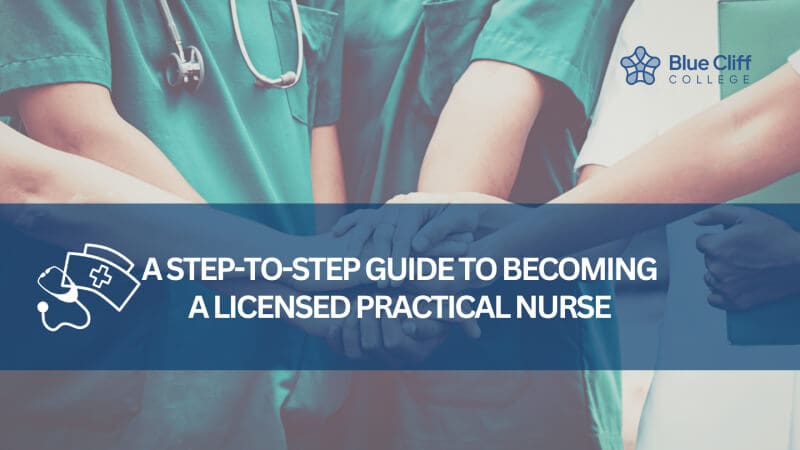Healthcare is a universal need, which is what makes it such a great field to be a part of. It’s always growing, and there will always be opportunities for those who want to succeed and grow in the industry.
The benefits of working in the healthcare industry are unrivaled. But is a career in healthcare right for you? Let’s discuss what a career in allied healthcare is, the variety of professions available, what the training looks like, and what the benefits are of working in the field.
What Is an Allied Health Career?
Did you know that you can be in the healthcare field without being a doctor, nurse, or pharmacist? It’s estimated that allied health professionals make up almost 60% of the healthcare workforce. Allied health careers involve the delivery of health or related services in:
- Identification
- Evaluation and prevention of diseases and disorders
- Dietary and nutrition services
- Rehabilitation
- Health systems management
- Many more
Which Healthcare Profession is Right For You?
With an allied health career, there are a variety of professions that are available to you. These are just a few examples of the many to choose from.
- Athletic Trainer Athletic trainers collaborate with other healthcare providers to manage injuries and illnesses common to people who play competitive sports. This career generally requires a bachelor’s degree.
- Cardiovascular Technologist Cardiovascular technologists are essential to running diagnostic tests to assess conditions that affect the heart and lungs. They take the patient’s medical history, maintain and operate imaging equipment, conduct tests like electrocardiograms, and record the results. This career typically requires an associate’s degree.
- Dental Hygienist Dental hygienists clean teeth, take X-rays, apply sealants, and much more to ensure the dental health of their patients. They work closely with dentists and are responsible for providing patient education. This career generally requires a three-year associate degree program.
- Lactation Consultant Breastfeeding for new mothers can be painful and complicated. That’s why lactation consultants are available at hospitals, clinics, and birthing centers to help families work through problems with lactation. The education for this career varies, but certification may be obtained through the International Board of Lactation Consultant Examiners.
- Nuclear Medicine Technologist Nuclear medicine technologists work closely with patients during imaging procedures like positron emission tomography scans. They educate patients on what to expect, administer radiopharmaceutical injections, operate medical equipment, and take detailed records. This career generally requires at least an associate degree.
Benefits of Working in a Healthcare Profession
Healthcare is a constantly growing field, and there’s a good reason for that. There are a number of benefits to working in it. Diverse Careers The healthcare industry is vast, with professions in a diverse variety of fields. These include:
- Disease prevention and control
- Personal healthcare
- Maternal and childcare
- Mental healthcare
- Community healthcare
- Environmental healthcare management
- Drug prevention and control
- Nutrition
- Health education
- Dental health
- Occupational safety
- Emergency medical services
Well-Paid Work
Many careers in the healthcare industry provide an above-average salary in the United States, and the number of positions available is always growing. Some of the highest-paying roles are:
- Nurse practitioners with a median annual wage of around $120,000
- Medical and health service managers with a median annual wage of around $101,000
- Physician assistants with a median annual wage of around $121,530
Great Job Outlook
Healthcare continues to expand rapidly, making healthcare jobs some of the most in-demand in the future. Between 2020 and 2030, employment in healthcare occupations is projected to grow 16%, adding about 2.6 million new jobs. This is faster than the average projected growth for all occupations in the United States.
Expansive Career Paths
Healthcare professions are accessible to people with a variety of educational backgrounds. It’s easy to grow in the field as you add more degrees and certifications to your resume, creating room for a lot of career growth.
Fulfilling Employment
A big draw to the healthcare industry is that people want to make a difference and create a positive impact on other’s lives. They work to support people’s health and well-being, which makes each day feel meaningful. They also get to spend their time with patients, working with new technologies, and collaborating with others.
How Technology Has Changed The Career Of Nursing
What Makes a Healthcare Profession Stand Out From Other Professions?
Many of the benefits above are the reason that people gravitate toward a field in healthcare as opposed to other industries. There are endless reasons that healthcare careers stand out, including:
- High job satisfaction
- Accessibility to a variety of educational backgrounds
- Travel opportunities
- Stimulating work environments
- Respected role in society
What Is Allied Health Career Training Like?
The level of training you need to receive depends on the profession you choose in the allied health career field. In general, the education that is required is very specific to your chosen specialization, as well as building skills in improved communication, procedures in providing elevated levels of care, and any general knowledge you may need.
How Does COVID-19 Impact Working as an Allied Health Professional?
COVID-19 rocked the entire healthcare industry. It drastically increased the demand for healthcare workers, added stress and extra hours to those already in the field, and stretched resources thin. The industry had to evolve with all of the challenges that COVID-19 presented. Many providers started offering telehealth options so patients didn’t need to risk coming to a clinic or hospital and getting the virus. Cleaning became even more of a priority, with extra protocols put into place to sanitize every area that is accessible to patients. There were a massive number of changes that were made, and some even stuck around after the peak of COVID-19 was over.
What Is the Average Salary of an Allied Health Professional?
Because the allied health field is so vast, the average salary of different professions within it varies greatly. There are a couple of factors that determine the salary of chosen specializations:
- Urban vs. rural location
- Large hospitals vs. small offices
- Years of experience vs. just entering the field
- Shorter degrees vs. higher level ones
The largest of those factors is the level of education that’s required for the role. Those that require associate’s degrees still pay well, but not as high as a career that involves earning a master’s or doctoral degree. Without taking into account the specificity of professions, the average salary of an allied healthcare professional is around $40 per hour.
Work Toward a Brighter Future at Blue Cliff College
Are you passionate about having a positive impact on others? A career in the allied health industry may be for you. At Blue Cliff College, we offer a variety of programs in the allied health field that will help you reach your goals, all while keeping your busy schedule and convenience in mind. Enroll now or contact us to learn more about this program and others that are offered by Blue Cliff College.





